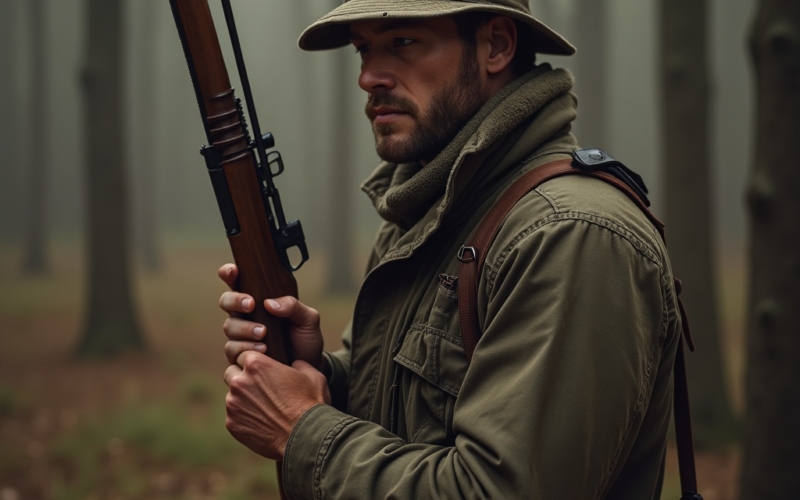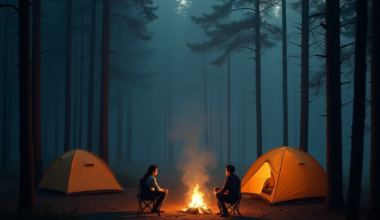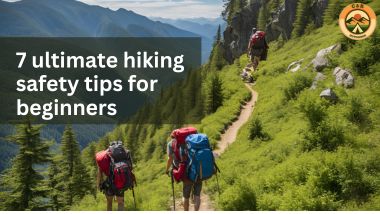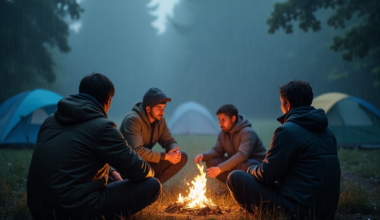Hunting as a beginner looks simple. You just step into the wilderness with a rifle or bow in hand, with your heart pounding with anticipation. This adventure seems to evoke a deep primal feeling within you. This feeling then heightens when you catch your first game. You then you realize that you do enjoy having this feeling but you know nothing about hunting.
Hunting is not just a sport; it is a tradition that fosters a connection to nature and offers a sustainable way to get food. You get the chance to learn how to enjoy the chase, and be patient. However, for beginners, this can feel overwhelming.
This stems from various regulations, gear, techniques, and ethical considerations. But all these are essential to the experience. If you’re excited to start your first hunting adventure but aren’t sure where to begin, this hunting guide for beginners is for you.
We will cover all the essentials to help you get started. This includes choosing the right gear, understanding hunting laws, and developing your skills. By the end of this article, you’ll feel confident taking your first steps into the great outdoors.
Understanding Hunting Laws and Ethics
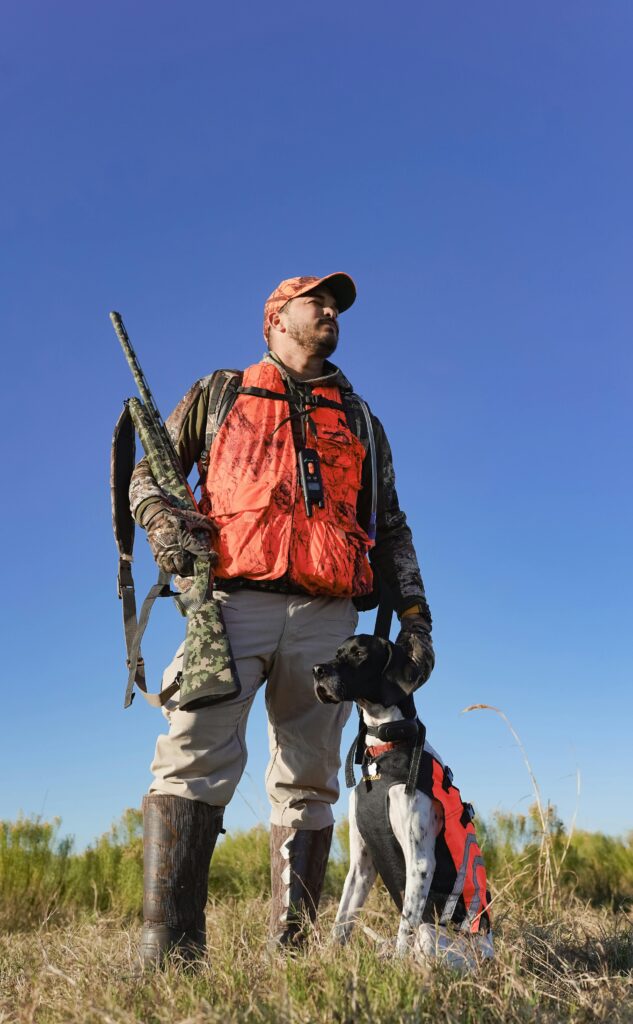
Hunting isn’t simply about picking up a weapon and heading into the forest. Before you take that step, it’s crucial to understand the legal and ethical responsibilities that come with this outdoor adventure.
I have compiled a list of regulations and guidelines that every hunter can follow. As a beginner, it’s important to be familiar with these rules before embarking on your hunting experience.
So, embrace this knowledge, and you’ll be well-prepared for your journey.
Hunting Regulations
Every state or country has its own set of hunting regulations, laid down for hunters or outdoor enthusiasts. These regulations are there to protect you; the hunter, the people around and even more, the animal you plan to hunt.
Let’s take a closer look at some of these rules.
- Licenses and Permits
Most regions require you to obtain a hunting license before you can begin to hunt. Also, specific permits are for different game species. So, before you start, do your research first. Know whether the area you would be hunting requires you to get a license/permit to prevent you from getting arrested.
- Hunting Seasons
Additionally, certain animals can only be hunted during designated times of the year to support conservation efforts.
This is key as it protects the animals and allows them to breed during those seasons. During such seasons, hunting isn’t allowed. Newbie hunters need to know when such seasons start and end.
- Bag Limit(s)
Bag Limit is the maximum number of game animals, birds, or fish an individual or a hunter can harvest within a specific period.
These restrictions are normally established by wildlife management authorities to prevent over-harvesting. It also ensures that wildlife populations are maintained. Bag limits are significantly based on the species, location, and season.
So, before heading out, check with your local wildlife agency to ensure you’re compliant with all laws.
Hunting Ethics
Hunting is not just about the thrill of the chase. It’s about respect. Ethical hunters follow guidelines that make this experience a form of tradition. Some of these ethics are:
- Taking only clean, ethical shots to minimize suffering.
- Recovering and utilizing as much of the animal as possible.
- Respecting private property and always obtaining permission before hunting on private land.
- Practicing fair chase. This means you give the animal a fair chance to escape, avoiding unethical shortcuts like baiting in restricted areas.
Choosing the Right Hunting Gear

Having the right gear is crucial for a safe and successful hunt. I have compiled a list of essential items you would need to start this outdoor adventure. Here’s a breakdown of what some items you’ll need:
Weapons: Firearms vs. Bows
Rifles & Shotguns
These are popular choices for beginners. Firearms require proper training and practice. A .22 rifle is great for small game, while a .270 or .30-06 is ideal for deer hunting.
Bows
Using bows to hunt offers a more challenging, and intimate experience. If you choose archery, practice regularly to develop precision.
Clothing and Footwear
Camouflage or Earth-Toned Clothing: This type of clothing helps you blend into your surroundings.
Weather-Appropriate Layers: Dress for the season to stay warm and dry. This help to minimize discomfort.
Hunting Boots: Waterproof and comfortable boots are essential for long treks. It also prevents your feet from spikes and sharp objects.
Essential Hunting Accessories
Binoculars: This tool helps you spot the game from a distance. Thus giving you, the hunter, ample time to prepare and wait for the game.
Backpack: It helps you carry supplies like food, water, and first-aid kits on the go. This makes the journey easier and more convenient.
Field Dressing Kit: This includes knives, gloves, and bags that help the hunter to process his or her harvest.
Finding the Right Location
Public vs. Private Land
Public Lands: Many national forests and wildlife management areas are open to hunters but have specific rules.
Private Land often offers less competition, but you’ll need permission from the landowner.
Also, spend time in the field looking for signs of wildlife, such as tracks, bedding areas, and food sources. Trail cameras can help you track game movement.
Mastering Hunting Techniques

Still Hunting: This is a method where you move slowly through the woods, pausing frequently to scan the area. This often requires patience and attentiveness.
Stand Hunting: Hunting from a tree stand or ground blind allows you to remain concealed and wait for the game to come to you.
Spot-and-Stalk: This method involves spotting the game from a distance and then carefully moving closer for a clean shot. It’s commonly used in open terrain.
Calling and Luring: This method is when hunters use calls, scents, or decoys to attract animals. It is an effective strategy, especially for species like deer, elk, and turkeys.
Developing Hunting Skills
Marksmanship
Accuracy is everything in hunting. Whether you are using a firearm or bow. Practice regularly at a shooting range to improve your aim.
Tracking and Sign Reading
As a hunter, learning to identify tracks, scat, and feeding areas helps you locate the game efficiently.
Field Dressing
Once you’ve successfully harvested an animal, you must field dress it to preserve the meat. Learn proper techniques for skinning, gutting, and butchering.
Staying Safe in the Field
Hunting is an exhilarating experience, but safety should always come first. Hunting guide for beginners are not meant to bombard you with rules but rather guide you. The following are some precautions you can take can follow as a hunter/newbie hunter:
- Remember to always treat firearms as if they’re loaded.
- Wear blaze orange when required to ensure other hunters see you.
- Know your target and what’s beyond it to prevent accidents.
- Hunt with a partner when possible, and inform someone of your location.
Conclusion
Hunting is more than just a pastime. It’s a skill that fosters patience, respect for nature, and self-sufficiency. While the learning curve may seem steep, every great hunter started as a beginner. Take your time to learn, practice, and absorb the wisdom of experienced hunters.
Ready to dive deeper into the world of hunting? Explore more insightful content, guides, tips, and expert advice at CandrOutdoors. Your go-to source for all things pertaining to outdoor adventure and outdoor living spaces.
Happy hunting!
